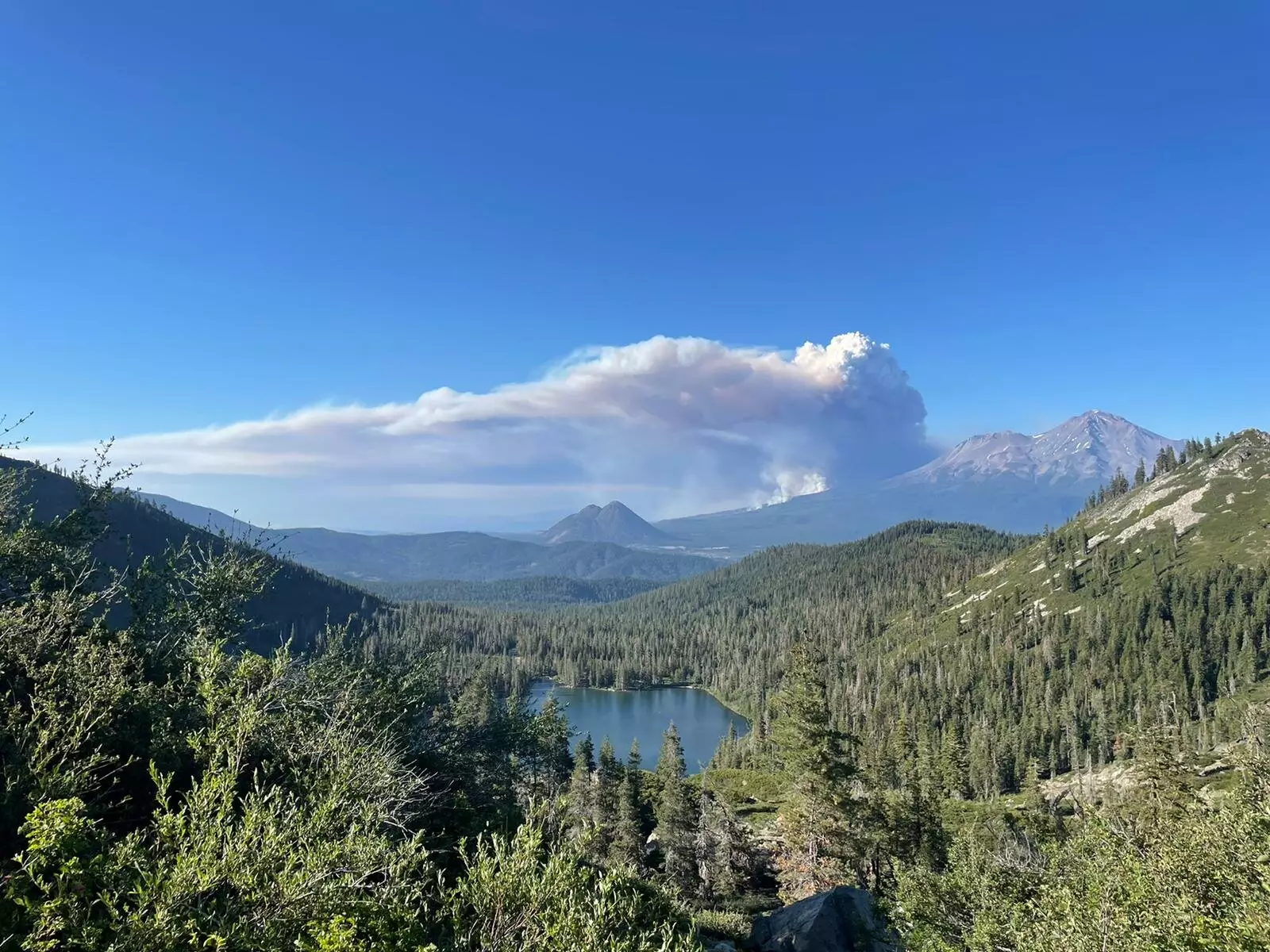California has been significantly impacted by wildfires over the past few years, with up to 70% of the state covered in smoke during certain periods. A recent study conducted by the University of California, Davis, shed light on the effects of wildfire smoke on California’s lakes. The study utilized a combination of lake-based sensors and satellite imagery to assess the impact of smoke cover on these ecosystems.
The study revealed that the maximum smoke cover in California has increased by approximately 116,000 square miles since 2006. Researchers measured lake responses to wildfire smoke during the largest fire seasons in 2018, 2020, and 2021, noting that the lakes were exposed to an average of 33 days of high-density smoke between July and October. August and September registered the highest number of smoky days, indicating a significant impact on the lakes during these months.
The extent of wildfires in California has quintupled since the 1970s, leading to a rise in smoke cover over the years. The study highlighted the importance of understanding the implications of these changes on lake ecosystems. Smoke has been found to alter the fundamental drivers of lake function, such as light, water temperature, and oxygen levels, which are crucial for the health and productivity of lakes.
While the study confirmed that wildfire smoke does affect lakes, the extent of these changes varies depending on factors such as lake size, depth, and nutrient levels. Researchers observed decreases in photosynthesis and respiration rates in lakes exposed to smoke, indicating a shift in the food webs and overall ecosystem dynamics. It is crucial to recognize the individuality of each lake and how it responds to the presence of smoke.
The study emphasized the need for more research to comprehensively understand the impact of wildfire smoke on lake ecosystems. As wildfires become more frequent and intense, it is essential to reframe the perception of smoke as a seasonal weather phenomenon that has lasting effects on ecosystem health. Co-authoring institutions, including UC Davis and the University of Nevada-Reno, are working towards a better understanding of how wildfires shape California’s lakes.
The study conducted by the University of California, Davis, highlights the significant impact of wildfire smoke on California’s lakes. The findings underscore the importance of studying the long-term effects of smoke on lake ecosystems and the need for proactive measures to protect these vital water bodies against the changing landscape of wildfires in the region. As wildfires continue to pose a threat to California’s environmental health, research efforts must focus on mitigating the effects of smoke on lakes and promoting their resilience in the face of this ongoing challenge.


Leave a Reply